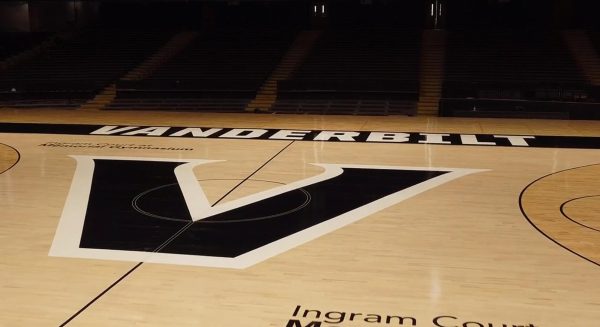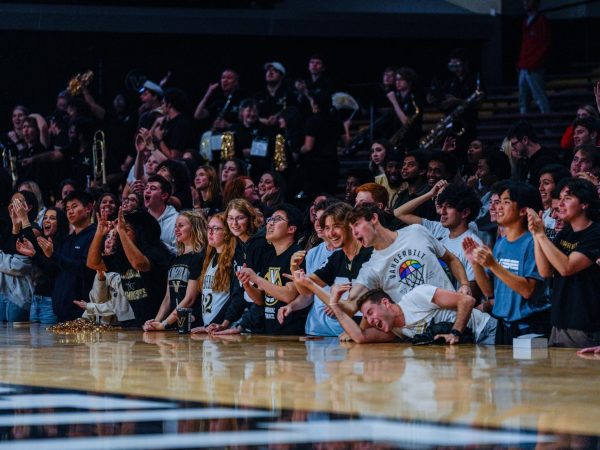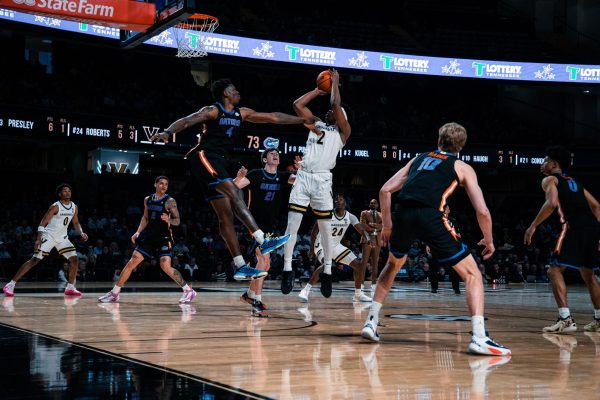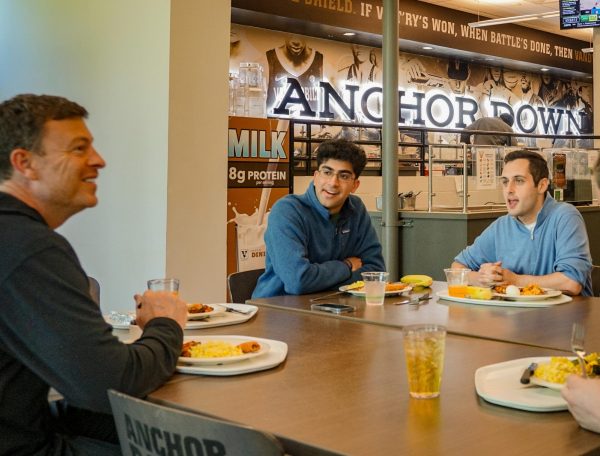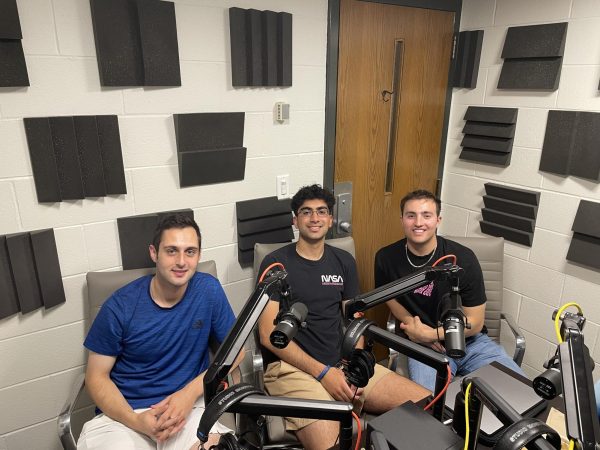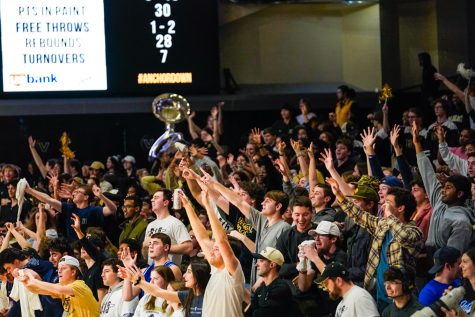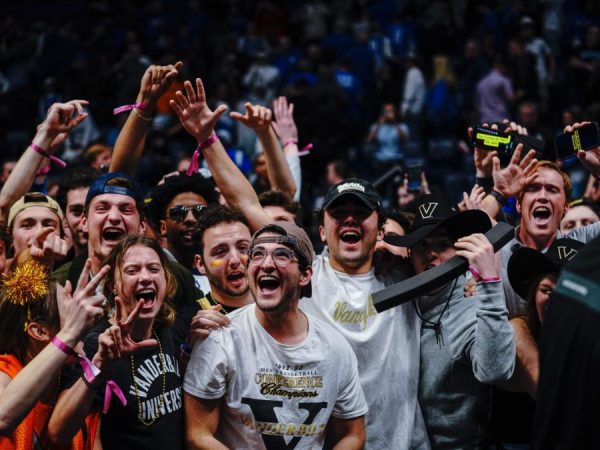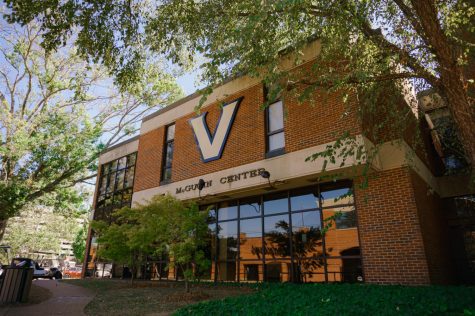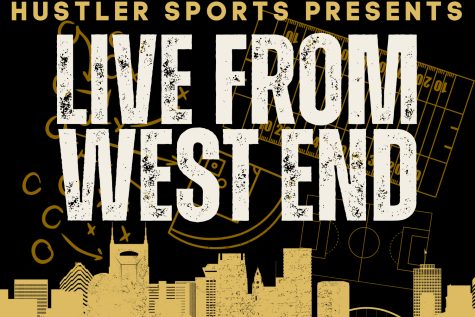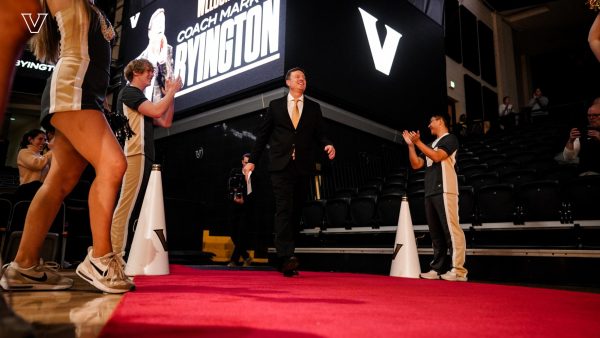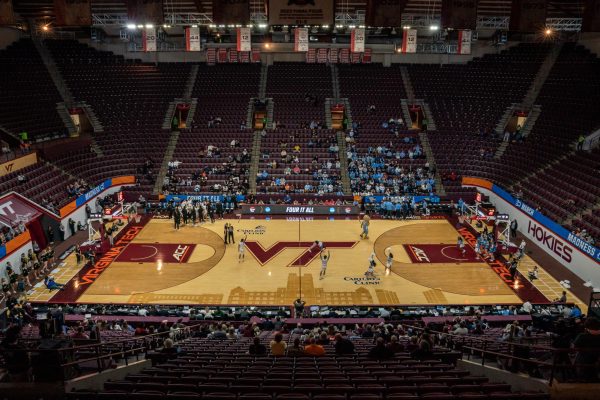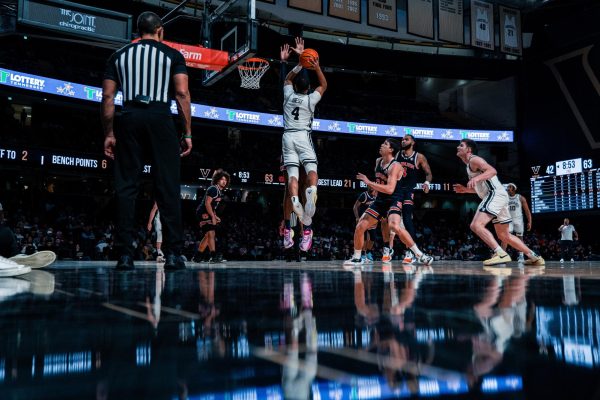Q&A with mayoral candidate Carol Swain
Swain, a former Vanderbilt professor known for her conservative commentary, talks to the Hustler about vision for Nashville, diversifying political conversations
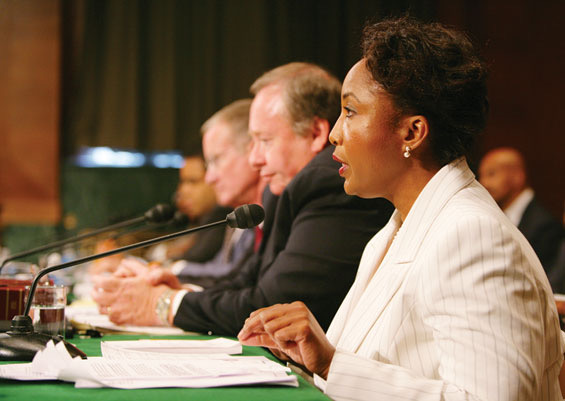
This morning, former Vanderbilt political science and law professor Dr. Carol Swain released a statement announcing her candidacy for mayor of Nashville. The election, which is currently set for Aug. 2 but may be moved to May contingent upon a state Supreme Court ruling, comes after Mayor Megan Barry’s resignation last month after pleading guilty to criminal charges in connection with her affair with former police bodyguard. Swain is the second conservative candidate to announce their campaign––Ralph Bristol announced his candidacy today––and is well-known for her conservative commentary. Both are running against Mayor David Briley and Councilwoman Erica Gilmore.
Swain gained the Vanderbilt community’s attention when students held a campus rally in Jan. 2015 in protest of an op-ed she wrote for the Tennessean in which she said that Islam “poses an absolute danger to us and our children.” The protestors insisted that administrators condemn Swain’s comments and declare that Vanderbilt’s campus is free of intolerance and discrimination. Students also circulated a petition demanding her suspension from the university, which the Chancellor respondedto in an official statement, saying that her statements “do not reflect the opinions of the university in any way.”
Swain was never suspended, but she retired from Vanderbilt in January of 2017. Since retiring, Swain has been writing her newest book, Debating Immigration: Second Edition, set to come out in July.
The Hustler sat down with Swain to talk about her mayoral candidacy, her plans for the future of the city, and her views on identity politics.
Vanderbilt Hustler: Can you expand a little more on why you’re running and why you see yourself as a candidate to bring Nashville in the direction you want?
Carol Swain: Well first of all, I decided to run yesterday. A number of people had asked me to run for several months, and I decided to run because… I wanted to make sure that we would have a different vision of Nashville. Because at the time it seemed as if Erica Gilmore and David Briley might be the only candidates. I became concerned when the Nashville Business Coalition announced a few weeks ago that they wanted people to stay out of the race, that Nashville needed continuity and stability, and they pretty much wanted David Briley to be unopposed in August. So at that time, I was very concerned about the fact that David Briley was not elected by voters, and if he was unopposed in August then he would be the mayor for a year. That would make him the incumbent next year, so essentially he would probably be in office for at least five years.
I was concerned, too, that the city was headed in the wrong direction. A lot of the conversation today is about the transit plan, but Nashville has a number of other issues, and I talk about some of those in my press release. The rising violent crime, the crumbling infrastructure. The pension system for city employees has a $3 million shortfall. The city is over $5 million in debt, and so there are a number of issues that I felt should be debated, and I felt that they would not be debated unless you got somebody in that cares about those issues and would bring them to the forefront.
VH: I would love to hear a little bit about your time at Vanderbilt and what that means to your campaign. How did your experiences as a professor in this city and working with young students shape the platform and direction you want the city to go in?
CS: Well first of all, it has absolutely nothing to do with Vanderbilt. And I never saw myself as someone who would run for office. I always told people that the call of my life was to hold politicians accountable, not to become one. And so I’m solely running because I could not get other people to run instead. And I’ve always felt that you needed competing voices, and for a city like Nashville there’s a need for another vision. The press release doesn’t discuss this, but there’s some data that shows that [last year] the cost of living in Nashville increased more than any other city, and that to live comfortably in Nashville, you need an income of $70,000 a year, family income. The average Nashvillian makes $50,000 a year. So people who are in the city working are not able to live in Nashville comfortably, and so that was one concern of mine. The other was the violent crime rate. Last year, we had 107 murders in Nashville and that’s the second highest murder rate in the history of Nashville.
The transit plan that’s being pushed, I’m concerned about what happened in the past because it’s pretty clear from studies that it’s not going to fix the traffic woes and congestion affecting Nashville, so it’s not going to solve our problems––it’s going to make it worse. And it’s going to cost so much that our taxes will go up to the point that they will be higher than taxes in New York City, and that means hotels, rental cars, as well as sales taxes. That puts pressure on everyone. It puts pressure on tourists, who will be less likely to come to Nashville for their conferences, and it affects the ability of working people in Nashville to be comfortable. And we have a situation where people in Nashville who are poor are being forced out of the city because the average rent in Nashville is something like $1,400 [a month]. To live in an upscale neighborhood, it’s something like $1,700. And so people are moving to Antioch, Smyrna, Springfield––further out in those directions. And they drive to Nashville to work, and so they are not able to live near their jobs–that’s part of the problem.
VH: What do you think your role will be in solving these problems? How do you plan to address some of these really big issues in the city?
CS: Well first of all, as a social scientist, I think my training comes into play because I would look into best practices of other cities that are confronting similar problems, and so that’s the first thing that I would do. And I would draw on the resources of some of the think tanks that address those issues and just find the best practices and also the best people. There’s a tremendous amount of waste in government, and that tends to be the case in every city that’s run by Democrats. They tend to have a similar set of problems: rising taxes, increased crime and crumbling infrastructure. And so I believe that having a different perspective on government, I would not be beholden to people in the way many of the politicians in Nashville have been in the past there’s a lot of cronyism, and that makes for bad government and it makes for waste.
VH: Obviously you are in the very early stages of this. You just recently, in the last two days, picked up your paperwork to file for this. How do you plan on building this campaign and garnering support, particularly among young voters? Nashville voted more Democrat in the presidential election.
CS: I don’t believe Nashville has ever had a Republican mayor. But I do think that Nashvillians would benefit from hearing different perspectives and hearing a different vision for the city. So if the only thing my candidacy serves to do is to get some issues out that would not otherwise be debated, I would feel that that was successful. But I’m running to win, and I’m not looking just for the votes of conservatives. I intend to make a case to pull all the voters, including voters in the minority communities, because I feel that they are underserved and they have been fed a pack of lies about this transit program and what it is going to do for them. Many of them believe that it’s going to create a lot of jobs for Blacks and that the bus system will be improved. In fact, it’s likely to drain resources from other programs and leave them worse off.
VH: One of the minority communities that’s pretty vocal in Nashville is the LGBTQ+ community, and I was wondering how you plan to attract that community.
CS: That has nothing to do with the issues that I care about.
VH: I just mean as voters, how do you plan to pull in young people, LGBTQ people–
CS: I’m going to be running to serve the people of Nashville. All of the people of Nashville, most of us don’t identify by our sexual behavior. That’s not how we identify. We identify by the issues that we care about. And so LGBT people are probably concerned about the traffic congestion, the rise in taxes, the crime. Every issue that is important. The potholes. All of those are the issues that mayors deal with, and so I think LGBT people have the same concerns as others.
VH: Do you think any of your previous comments or your outspokenness in the past might hurt your ability to attract those people, even if they do agree with your platform points?
CS: I’m not going to go for special interest votes. I’m going for everyone’s votes. I believe in nondiscrimination. I don’t believe in favoring any particular group, and that’s really the way we all should be. We are Americans. We should be united around issues and principles and values. And one value is nondiscrimination.
VH: Where do you see your biggest areas of support so far in Nashville?
CS: I have tremendous support, and I have support among people. I have friends, whether you believe it or not, and I don’t know what kind of myths you have on campus, but I have friends that are part of the LGBT community and they are people that, until everything became politicized a few years ago, they lived their lives normally like everyone else. It was like, everything was not about sexual identity. Everything was not about identity politics. People just lived their lives. That may be hard for you as a young person to imagine, but that’s the way the world was. And I would say the last 10 or 15 years is when we’ve seen tremendous changes and everyone identifying as some type of group, and I think that that has been detrimental to America as a whole. We are Americans and we ought to be united around our shared values and principles as American citizens, or as people who have chosen to be in America.
VH: How do you think the challenges of working in a municipal or city government are going to be different from maybe some of the work you’ve done before?
CS: I mean I’ve never served in office before, but I’ve studied government, and I know what government efficiency should look like, and I certainly know what failed government looks like. I think that if you have integrity and you have transparency, and you care about the people, you put the needs of the people above special interests––I believe that that’s what people really want. And the average American, they aren’t concerned about the issues the people on campus get all riled up about. They’re just trying to live their lives.
VH: Do you have anything you want to say to those people who are more tied to identity politics?
CS: No I don’t, no I don’t, and maybe I should not have granted you an interview. Because I’m doing what I think is best for the city of Nashville; I’m not even doing it for me. I’m busy working on my memoir, speaking all across the country, and this is not something I thought I would be doing three days ago. The only reason I’m doing it is because people pleaded with me to get into the race, and I do think that I’ve studied Nashville enough that I can bring effective leadership and I can bring nondiscrimination and I think the new direction is what Nashville needs. And whether I’m elected or not, I believe having more voices and competing visions out there makes for a better outcome for our city.
VH: Who are some of the people who have asked you to get into the race or supported you?
CS: I have no reason to give you the names, and again I should not have probably accepted your interview. I thought when you sent me the email that you wanted to know why I was running. It has nothing to do with LGBT people, nothing to do with immigration. It has to do with making Nashville a better place to live for all of the people in Davidson County. I’m running because I care about people. I’m not running for myself. I don’t need another headache.
I’ve always believed that it’s important to have people who are willing to lead, not just to follow a pack, and I think it’s sad on the college campuses just how students today, very few of them are willing to just stand up on values and principles… you all seem to be so much into identity politics and I believe that’s to your detriment. And I wish you well, and I miss the students. I loved teaching my course on political culture. We debated, there was lots of fun, and I had LGBT students in my classes that enjoyed the class and did not complain. During the time of the petition… the students that were complaining were not my students, and some of them were from other parts of the country. And it was an attack on five conservative professors who were tenured around the country. I just think it’s so unfortunate that universities have become places where you don’t have competing ideas and principles. There’s too much groupthink.
VH: On your stance about those competing ideas, if you don’t win, do you want to be involved in a different way and make sure your voice is heard in a different way? Would you be interested in politics outside of this?
CS: No, I mean, other than stepping up because no one else would, I have a very full life impacting people across the world with my writing and my interviews. This actually is not how I saw myself spending the next few months. I have a book that’s coming out in July on immigration, I’m working on my memoir, I have speaking engagements. So this will change my life over the next few weeks and months, and whether I win or lose, it takes away from other things I was doing. I’m stepping up because other people didn’t or for whatever reason they chose not to. And for many Republicans, they feel there’s no way a Republican can win in Nashville, and to me it’s not about winning, it’s about being able to articulate a different vision for the people of Nashville. There’s no reason why people should not have a choice, and unless you get other voices into the race, there’s going to be issues that people will not know about.
There are many people in Nashville, and probably people in the room with you, that didn’t know about the pension shortfall or the deficit, maybe didn’t even know about the murder rate, the potholes that are not being fixed … in West End, Belle Meade and those areas, the roads look great and you don’t get potholes, but then you go to other neighborhoods and you see that the city’s resources when it comes to infrastructure are not being allocated in a way that’s serving the needs of all the voters in Nashville. So there’s a fairness problem, there’s a lot of cronyism, sweetheart deals. Integrity in government needs to be restored, and I think that that’s important, and that’s why I’m running. One of the reasons I’m willing to step out there is I’ve always been bold, and I’ve always spoken my mind and so I’m doing it not for me, not because I need something new to do. I’m doing this for the people of Nashville.
VH: What do you think about former conservative radio host Ralph Bristol stepping in? Does that show you that people do want this conservatism? Or is that encouraging at all?
CS: I’m glad he stepped in because until the two of us filed paperwork, there were no conservatives that were in the race, so I’m glad that he stepped up. So that’s fine. The most important thing now is to defeat the transit plan. It will not make transportation easier in Nashville. It’ll make it worse, and the cost it imposes on the city––we will be stuck with that for a number of decades. I mean, the debt that it would add to the city without solving the traffic problems… that’s important to have people out there who are articulating another vision. So that’s not a problem at all, and I think it’s important that at least we would have a runoff between the two top vote getters. And it may be two Democrats, and it may be a Democrat and one of the Republicans, I don’t know.
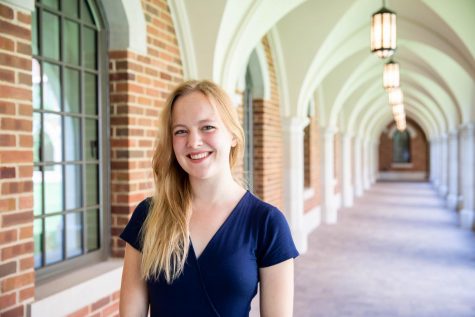
Sam Zern ('20) has been a member of The Vanderbilt Hustler since her freshman year, first as a staff writer and shortly after as assistant campus editor. She went on to be campus editor and, later, editor in chief. In her senior year at Vanderbilt, Sam was managing editor and streamlined recruitment and training processes.
In her time as a member of the editorial board, she has prioritized diversity and breadth in coverage, wanting to make sure as much of Vanderbilt as possible is represented in...

